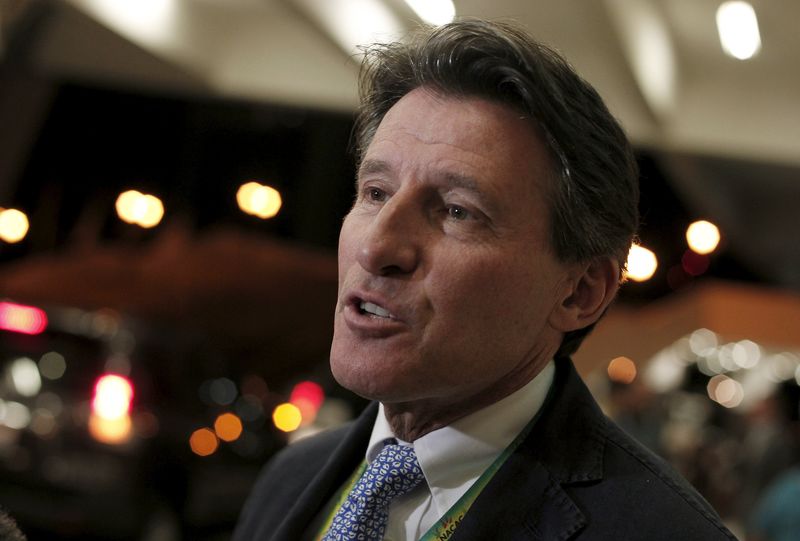By Mike Collett
LONDON (Reuters) - International athletes should not feel they have to reveal their personal and private medical details to prove they are clean and have not been blood-doping, Britain's IAAF presidential candidate Sebastian Coe said on Wednesday.
In a telephone interview with international media, Coe also said he still wanted to see the sport set up its own independent anti-doping agency to help combat allegations that the sport's governing body is not doing enough to weed out drug cheats and is complicit in the sport's doping problems.
He said he wanted such a body to work closely with WADA, the world anti-doping agency.
Coe, standing against Sergey Bubka of Ukraine in next week's IAAF presidential election in Beijing, was speaking the day after the federation announced historic bans on 28 athletes following the re-testing of samples from the 2005 and 2007 world championships.
This follows allegations made by British newspaper the Sunday Times and German broadcaster ARD about widespread cheating at Olympics and world championships.
In the wake of the controversies, some athletes, including Britain's double Olympic gold medalist Mo Farah, have said they will reveal details of their testing histories but Coe says he does not want them to do that.
"I would not want athletes to feel that they were being pressurized or bullied into putting out private medical background and data that could be misinterpreted as one-off readings. There is no onus on them to do that," he said.
"The systems are in place in both the IAAF and WADA to protect them and to allow us at the same time to protect the clean athletes and weed out the cheats.
"I would hate them to feel they are under pressure to do this because if they don't there is somehow an assumption they are guilty."
He added he was hugely dismayed at the perception in the media that the IAAF was "sitting on its hands", allowing cheats to prosper.
"I was dismayed to see the interpretation put on our motives, our judgments and our actions," said Coe.
"There is nothing in the history of our sport in the last 15 or 20 years other than us being on the cutting edge of either trying to develop the science of weeding out the cheats or taking the actions appropriate to finding them."

He believes an independent body for athletics could speed up the handling of doping cases.